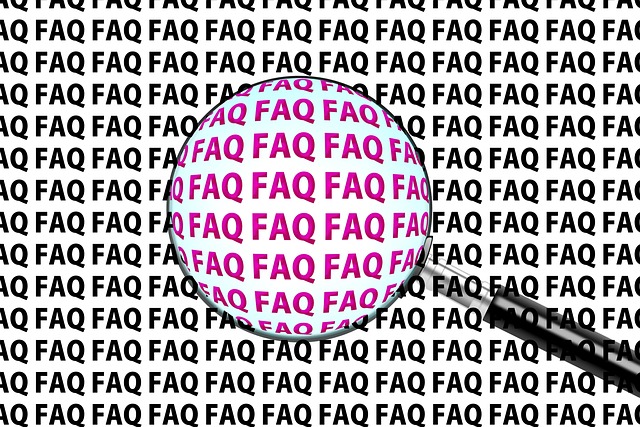Google FAQ Rich Results offer businesses and content creators a powerful SEO strategy by presenting structured cards within search results with direct answers to FAQs, boosting user experience, visibility, and click-through rates. The FAQPage schema enhances online content's interactivity and visibility on SERPs, optimizing websites for enhanced rich results featuring expandable cards. By integrating this schema, developers provide search engines with structured data about FAQs and their answers, improving engagement, reducing bounce rates, and increasing organic traffic. Leveraging structured data using the FAQPage schema helps search engines understand and display webpages as rich snippets in SERPs, driving higher engagement and online performance. Continuous improvement involves monitoring KPIs, reviewing user behavior, updating content, and refining schema markup.
In today’s competitive digital landscape, enhancing user engagement and search engine visibility is paramount. One effective strategy gaining traction is integrating the FAQPage schema into content for eligibility in Google’s rich FAQ results. This feature not only improves user experience by providing quick, structured answers but also boosts SERP real estate, driving more traffic to websites. By understanding the impact of Google FAQ Rich Results and leveraging structured data markup, businesses can optimize their content for better search rankings and enhanced user interaction.
- Understanding Google FAQ Rich Results and Their Impact on SEO
- The Role of FAQPage Schema in Structured Data Markup
- Benefits of Implementing FAQPage Schema for User Experience
- Enhancing SERP Visibility with FAQ-rich Snippets
- Optimizing Content for FAQ Rich Results: Best Practices
- Measuring Success and Continuous Improvement Strategies
Understanding Google FAQ Rich Results and Their Impact on SEO

Google FAQ Rich Results are a powerful tool for businesses and content creators looking to enhance their search engine optimization (SEO) strategies. By implementing the Google FAQ Rich Results schema, websites can display question-and-answer pairs in a structured, user-friendly format directly within the search results page. This feature not only improves the overall user experience but also increases the website’s visibility and click-through rates.
When users search for information related to your business or topic, Google FAQ Rich Results can showcase frequently asked questions (FAQs) as expanded card snippets, providing quick answers without requiring them to visit the full webpage. This direct approach captivates users, encourages engagement, and potentially boosts organic traffic. Additionally, optimizing your FAQ snippet with relevant keywords through FAQ Snippet Optimization and adding the Schema FAQPage Type can further enhance your site’s performance in these rich results, ensuring a competitive edge in the search engine landscape.
The Role of FAQPage Schema in Structured Data Markup

The FAQPage schema plays a pivotal role in structured data markup, enhancing online content’s visibility and interactivity. By implementing this schema, web developers provide search engines with crucial information about frequently asked questions and their answers directly within the webpage’s code. This structured format enables Google to interpret and display content as rich FAQ results, significantly improving user experience on search engine result pages (SERPs).
When incorporated correctly, the FAQPage schema can increase a page’s eligibility for these enhanced results, featuring question-and-answer pairs as expandable cards with highlights and excerpts. This visual representation not only attracts users’ attention but also encourages engagement by offering quick access to valuable information. For businesses and content creators, leveraging this schema is a strategic move to optimize their online presence, ensuring their content stands out in the competitive digital landscape, especially when competing for precious SERP real estate against more traditional results.
Benefits of Implementing FAQPage Schema for User Experience

Implementing the FAQPage schema offers a multitude of benefits for enhancing user experience and boosting online visibility. When Google detects structured data in your content, it can display rich FAQ results, providing users with direct access to frequently asked questions and answers. This improves user engagement by offering instant gratification and reducing the bounce rate. Users are more likely to find what they need quickly, fostering a positive experience that encourages them to explore further.
Furthermore, this schema enables FAQ Snippet Optimization, where Google can extract and display key information from your FAQs in search results, grabbing the attention of potential visitors. By adding the FAQPage schema, you’re essentially providing a navigation aid for both users and search engines, making it easier to understand your content’s structure and hierarchy. This, in turn, can lead to better rankings and increased organic traffic, as Google favors websites that offer valuable, user-friendly experiences.
Enhancing SERP Visibility with FAQ-rich Snippets

Google’s transition to FAQ Rich Results has significantly boosted the visibility and click-through rates of websites incorporating structured data. By implementing the FAQPage schema type, developers enable search engines to recognize content as frequently asked questions, enhancing the overall user experience. This structured approach allows Google to present a concise, engaging overview on Search Engine Results Pages (SERPs), featuring an accordion-like structure that enables users to expand and contract answers, making information retrieval swift and intuitive.
Schema SEO plays a pivotal role in this transformation, ensuring search engines can interpret and display content accurately. The Accordion Schema specifically, when integrated with FAQPage, provides a dynamic interface for presenting complex or diverse queries, thereby increasing the potential for higher SERP real estate. This strategic move not only captivates users but also encourages them to explore more of the website’s content, ultimately driving engagement and improving overall online performance.
Optimizing Content for FAQ Rich Results: Best Practices

To optimize content for Google’s FAQ Rich Results, focus on structured data using the FAQPage schema. This tells search engines exactly what information your webpage contains, enhancing its likelihood to appear as rich snippets in SERPs. Start by identifying frequently asked questions and crafting concise, answer-focused content. Organize these questions in a logical flow, making use of an Accordion Schema SEO layout that allows users to easily navigate through the FAQ. Each question-answer pair should be clearly delineated, with distinct headers and paragraphs for improved readability.
Use of the Schema FAQPage Type is key to signaling to search engines that your content is meant to provide answers. Ensure every piece of information is directly related to a user query, avoiding digressions or irrelevant details. Additionally, implement How to Add FAQ Schema correctly by including relevant HTML markup around each question and answer set. This structured data not only improves the look of results but also increases click-through rates, as users are drawn to the clear, helpful information presented in rich snippets.
Measuring Success and Continuous Improvement Strategies

Measuring success is a vital step after implementing the Google FAQ Rich Results schema. By utilizing tools like Google Search Console and analytics platforms, website owners can track key performance indicators (KPIs) to gauge the impact on user engagement and search rankings. The primary metric to monitor is the increase in click-through rates (CTRs) from featured snippets and direct links to your FAQ page. A higher CTR indicates that the Rich FAQ Results are driving more relevant traffic and improving user experience.
Continuous improvement strategies involve regularly reviewing user behavior and feedback, updating content to stay current and relevant, and refining schema markup for better accuracy. Utilizing Accordion Schema SEO effectively ensures that complex information is presented in a structured manner, encouraging users to explore further details. This iterative process allows you to fine-tune your FAQ page’s performance over time, maximizing its potential to capture valuable real estate in search engine results pages (SERPs).
